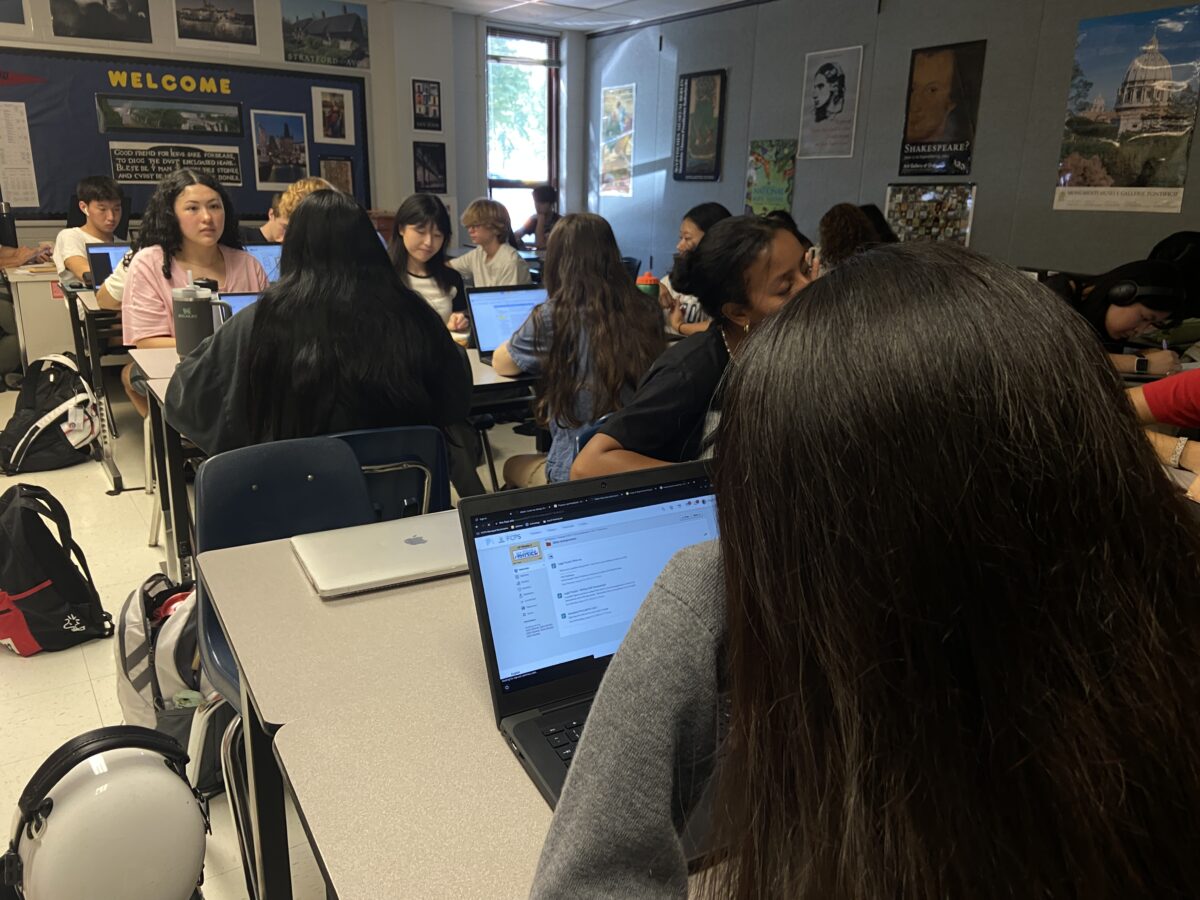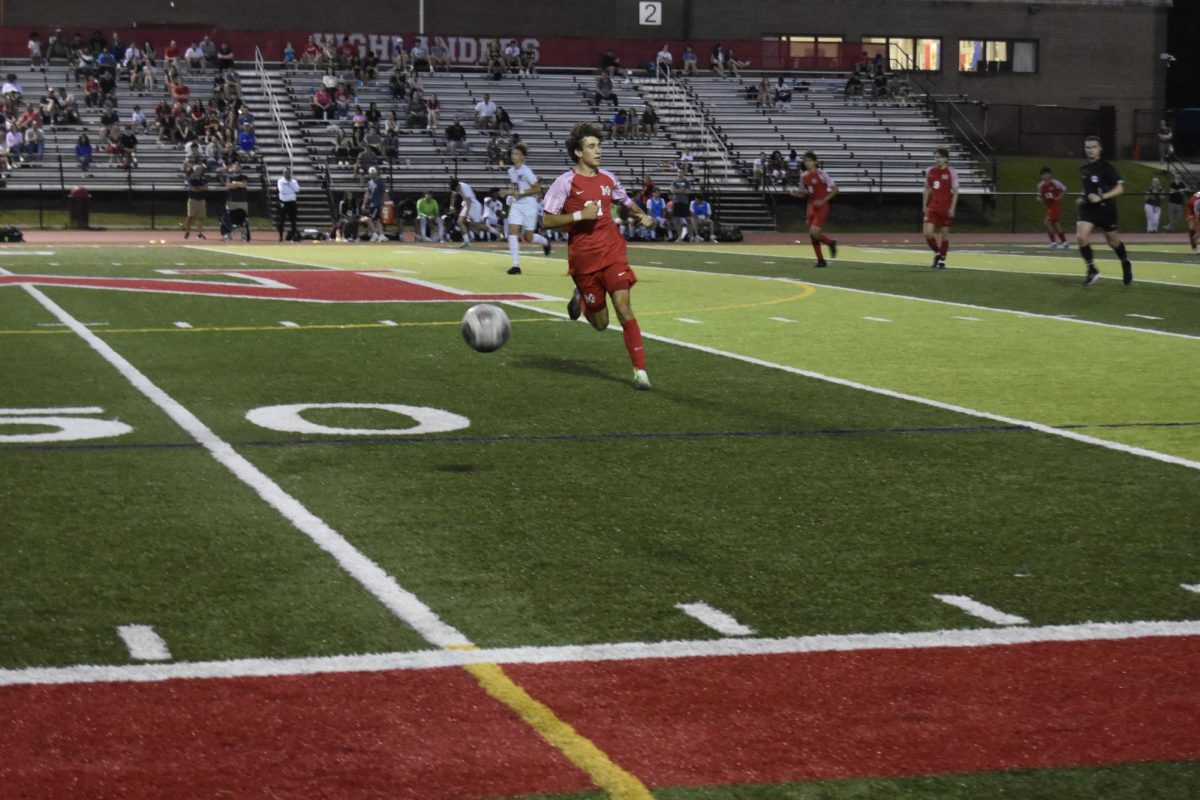In August of 2023, McLean High School’s administration received notice from Fairfax County Public Schools (FCPS) and Superintendent Dr. Michelle Reid regarding the updated grading policy. The email stated that teachers may now give zeroes for assignments, although students who make a reasonable effort to finish an assignment can receive a minimum grade of 50%.
The new policy replaced the previous 50% grading policy, where the minimum a student could receive for any assignment or exam was a 50%, in an effort to encourage student involvement in classes and minimize unfairness in grading.
“Part of the feedback that schools and students had given was that if a kid tries and gets a 55%, another kid can do nothing and still get a 50%,” Assistant Principal Jeffrey Barham said. “We felt that it was unfair, so the zeroes are back in place to show that if you’re not going to do anything, you’re going to get a zero.”
Many teachers have expressed positive opinions on this change.
“I’m in favor of safety nets,” math teacher Jake Farmer said. “But I think when you look at the scale of Fairfax County, automatically getting a 50% was too much of a safety net. The [administration] mentioned the change at a faculty meeting, and I believe the announcement was accompanied by raucous cheers.”
Teachers cite the building of a strong work ethic as a primary reason for their support of the new policy.
“At the end of the day, it just means that if you’re not going to do any work, you’re not going to get credit for doing any work,” math teacher Nathan Van Nuys said. “[The 50% policy] is not going to be the case in later years, when they have a job and they will get paid half of their salary or half of their wages if they don’t show up for work.”
On the other hand, some students have voiced discontent towards the sudden change.
“I think that this policy will increase the amount of plagiarism and AI that is being used,” sophomore Mia Mortman said. “Flunking a test is really difficult to recover from grade wise, and [the past] policy had made it a little bit easier to move on and recover from.”
Students have also protested that the change led to miscommunication regarding the grading process.
“Only one of my teachers explicitly stated the new grading policy, the others told us to review our syllabus,” Mortman said. “It felt like they knew it would be unpopular, so they didn’t want to be there when we found out.”
Furthermore, the vague wording of the policy of “reasonable effort to finish an assignment” may cause further confusion among students and teachers.
“[Specific things] are up to the teacher’s [discretion],” Barham said. “We just want to give [students] a floor of 50% if they show effort, and [we want to] work with [them] to improve [their] grade and do better. As long as [they] try, [they can] get a 50% [on assignments]. For example, if [a student] shows a teacher that [they] tried 10 problems last night but couldn’t solve most, that’s still reasonable effort. But if a teacher is collecting something, and [a student just] writes down a few words real quick, that is not reasonable effort.”
The replacement of the minimum 50% policy may cause some severe changes in grade averages and passing rates this school year.
“The 50% [policy] last year inflated some grades and let kids that didn’t do a lot to stick around that passing area,” Barham said. “We always want kids to pass, but if you’re doing nothing, you shouldn’t get a 50%.”
The minimum 50% policy had been implemented during the COVID-19 pandemic and asynchronous learning to support students struggling to adjust.
“I’m sure grades during the pandemic did [go up] because of [the 50% policy],” Barham said. “I feel like this is the first year we’re truly back to normal. Even the last two years, we had a lot of COVID cases, and we had to send kids home from contact tracing. It’s just a long process of transitioning back to [the] real school year.”
FCPS reintroduces the zero grading policy for the 2023-2024 school year
Students, teachers and administrators express conflicting opinions on new policy
Junior Kailyn Kim studies for her upcoming AP Physics test, anxious to see how the new grading policy will affect the class’s first exam of the year.
Donate to The Highlander
$210
$1000
Contributed
Our Goal
Your donation supports the McLean High School's independent, award-winning news publication.















Joyce Schellman • Sep 7, 2023 at 9:23 am
It’s call ACCOUNTABILITY. Work hard – get reward. Don’t work – fail. It not bad to fail. Benjamin Franklin failed at most of his inventions. It just made him work harder. Good teacher need to reward only when deserving.
Maura • Sep 7, 2023 at 7:40 am
I wish and hope Loudoun County Public Schools follows suit. Good for FCPS for making this change. Making students more accountable for their actions and work. After all, like the article stated, in the working world, doing nothing at your job doesn’t pay you at 50% – it will eventually, if not sooner, pay you 0 and give you a bad reference for your next job.
Virginia Primus • Sep 6, 2023 at 2:24 pm
Very wise decision. If you don’t try, you don’t deserve any credit. Thank you for making an effort important. FCPS need to uphold their excellence in teaching and learning and continue to provide
their students the best chance to succeed in the world following graduation.